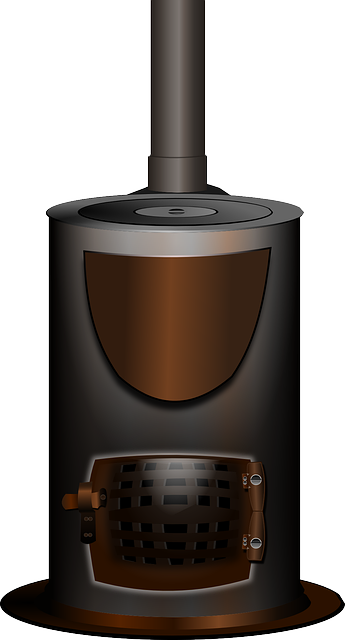Regular water heater maintenance is vital for preventing breakdowns, extending lifespan, and saving money. Common issues like mineral buildup, corrosion, and temperature fluctuations can be detected through tasks such as flushing, leak checks, and tank inspections. Early intervention prevents costly emergency repairs and ensures safe, efficient operation. For complex problems like corrosion buildup or gas leaks, professional assistance from qualified technicians is crucial to mitigate safety hazards and avoid further damage. Upgrading to an energy-efficient model further reduces costs and ensures a continuous supply of hot water.
Water heaters are often overlooked until they stop working, leading to costly repairs. By implementing routine maintenance, you can significantly extend your water heater’s lifespan and avoid unexpected breakdowns. This article guides you through understanding common water heater issues, discovering essential maintenance steps, and knowing when to seek professional assistance. Discover how proactive care can save you money and keep your hot water flowing smoothly.
- Understanding Water Heater Issues and Their Impact
- Routine Maintenance Steps for Prevention
- Professional Assistance: When to Call for Help
Understanding Water Heater Issues and Their Impact

Water heaters are often taken for granted until they stop working, and by then, it can be costly to repair or replace them. Understanding common water heater issues is a crucial step in preventing unexpected breakdowns. Many problems arise due to mineral buildup, corrosion, or temperature fluctuations. Over time, these can cause reduced heating efficiency, leaks, and even failure of the entire system.
Regular maintenance plays a vital role in addressing these issues. Simple tasks like flushing the heater to remove sediment buildup, checking for leaks, and inspecting the tank’s condition can significantly extend its lifespan. By keeping an eye on potential problems early on, homeowners can avoid costly emergency repairs and ensure their water heaters operate safely and efficiently, saving money in the long run.
Routine Maintenance Steps for Prevention

Regular water heater maintenance is a proactive approach that can save you from unexpected repairs and significant expenses. Start by inspecting your water heater for any signs of corrosion or leaks, ensuring all connections are tight and secure. Flushing the heater at least once a year helps remove mineral buildup and sediment, which can impede heating efficiency and lead to malfunctioning. This simple step alone can extend the life of your water heater.
Additionally, checking and replacing the temperature and pressure relief (TPR) valve is crucial. The TPR valve prevents overpressure in the tank, which could cause damage or even explosion. Keep an eye on the energy efficiency of your water heater too; modern models are designed to be more energy-efficient, so consider upgrading if your unit is old and consumes excessive energy. Regular maintenance not only saves costs but also ensures a continuous supply of hot water without interruptions.
Professional Assistance: When to Call for Help

While regular self-maintenance can go a long way in preventing water heater issues, there are times when professional assistance is necessary. As with any complex home system, water heaters can develop problems that require the expertise of a qualified technician. Corrosion, for instance, can build up over time, leading to leaks and reduced efficiency. A professional will have the tools and knowledge to safely remove and replace corroded parts, ensuring your heater operates at peak performance.
Similarly, if you notice sudden temperature fluctuations, loud rumbling sounds, or water that takes an unusually long time to heat up, it’s time to call in the experts. These could be signs of more serious problems like a faulty heating element, pressure build-up, or even a gas leak. Prompt attention to such issues can prevent costly repairs and potential safety hazards.
Regular water heater maintenance is a proactive approach that can save you from unexpected, costly repairs. By following the routine care steps outlined in this article, you can extend the lifespan of your water heater and avoid potential issues. Remember, addressing small problems early on prevents major disruptions and expenses. So, why wait for an emergency? Take control of your water heater’s health today through simple yet effective maintenance practices.
